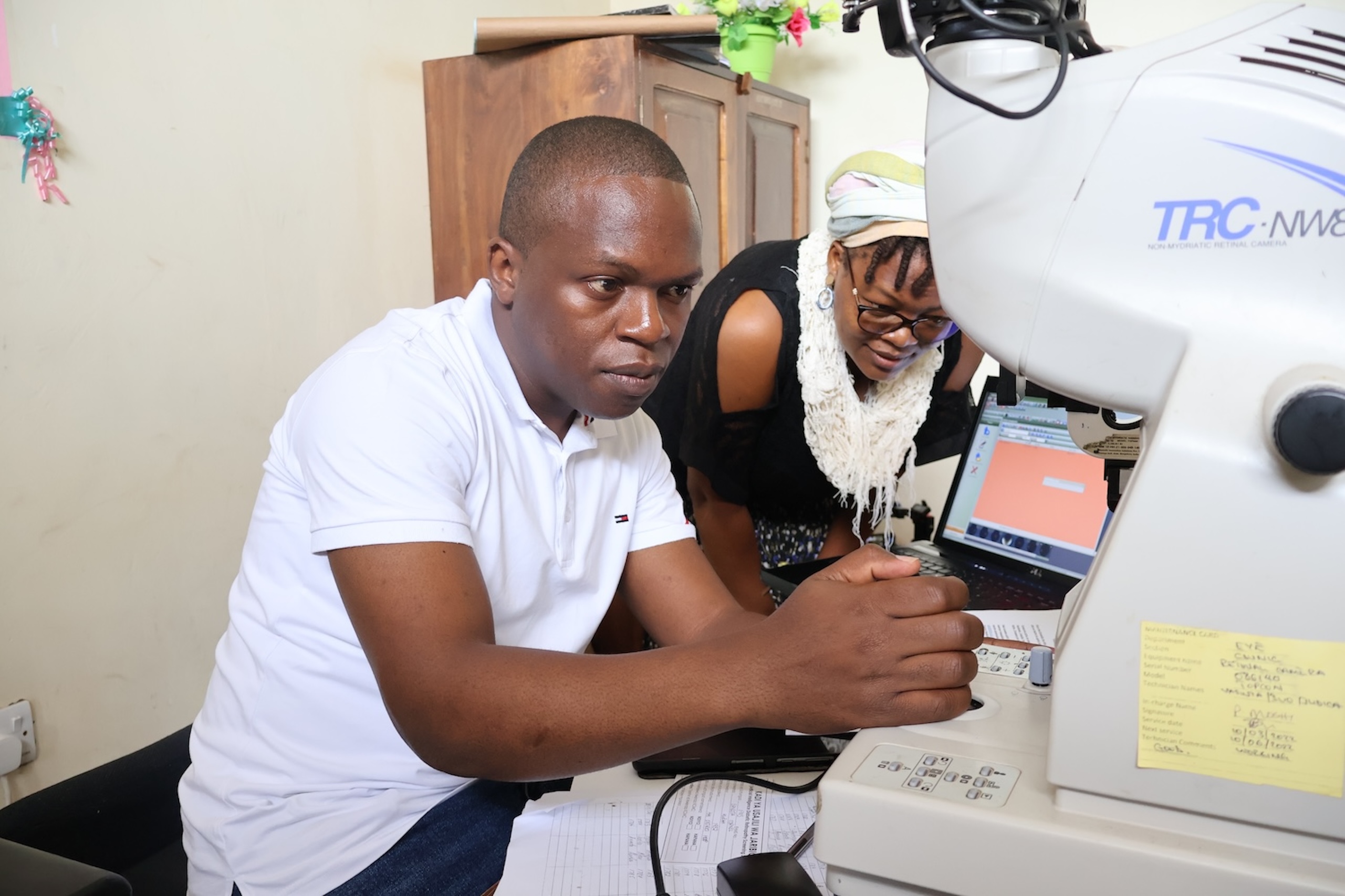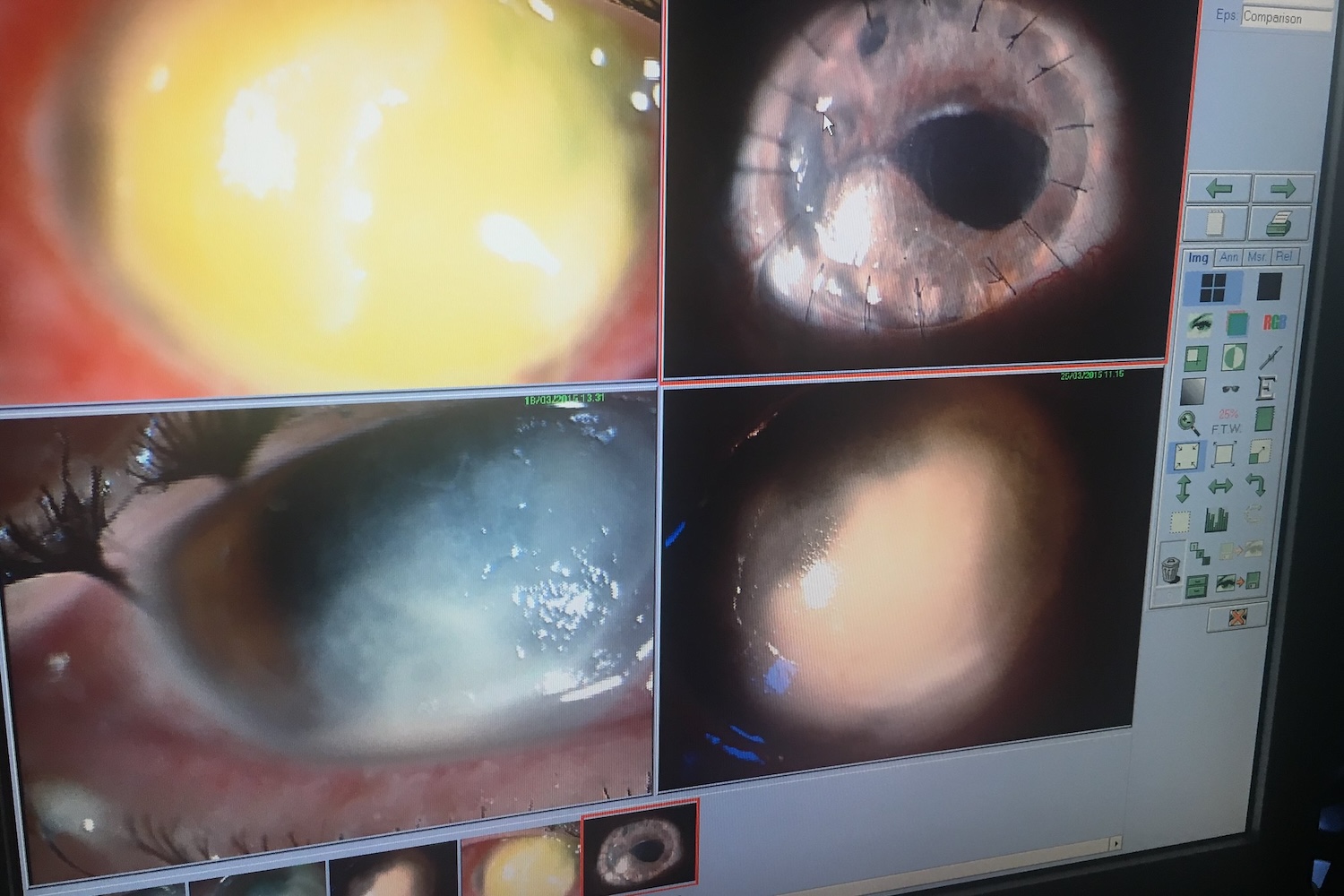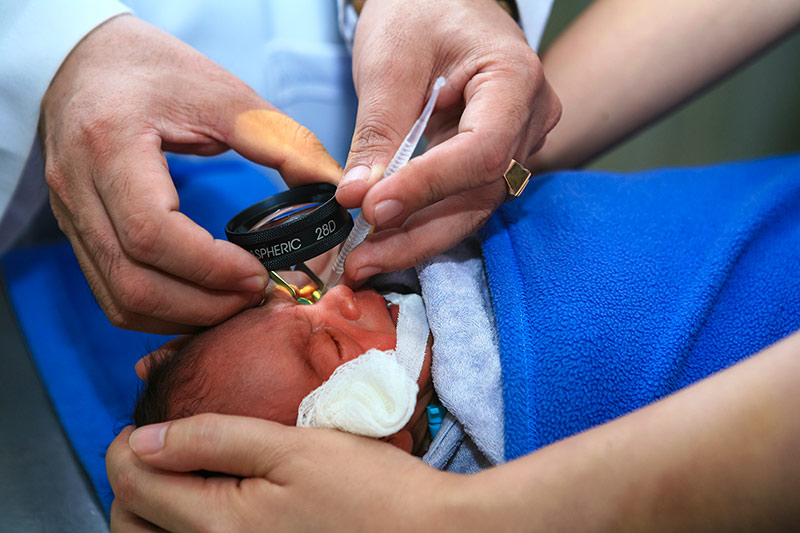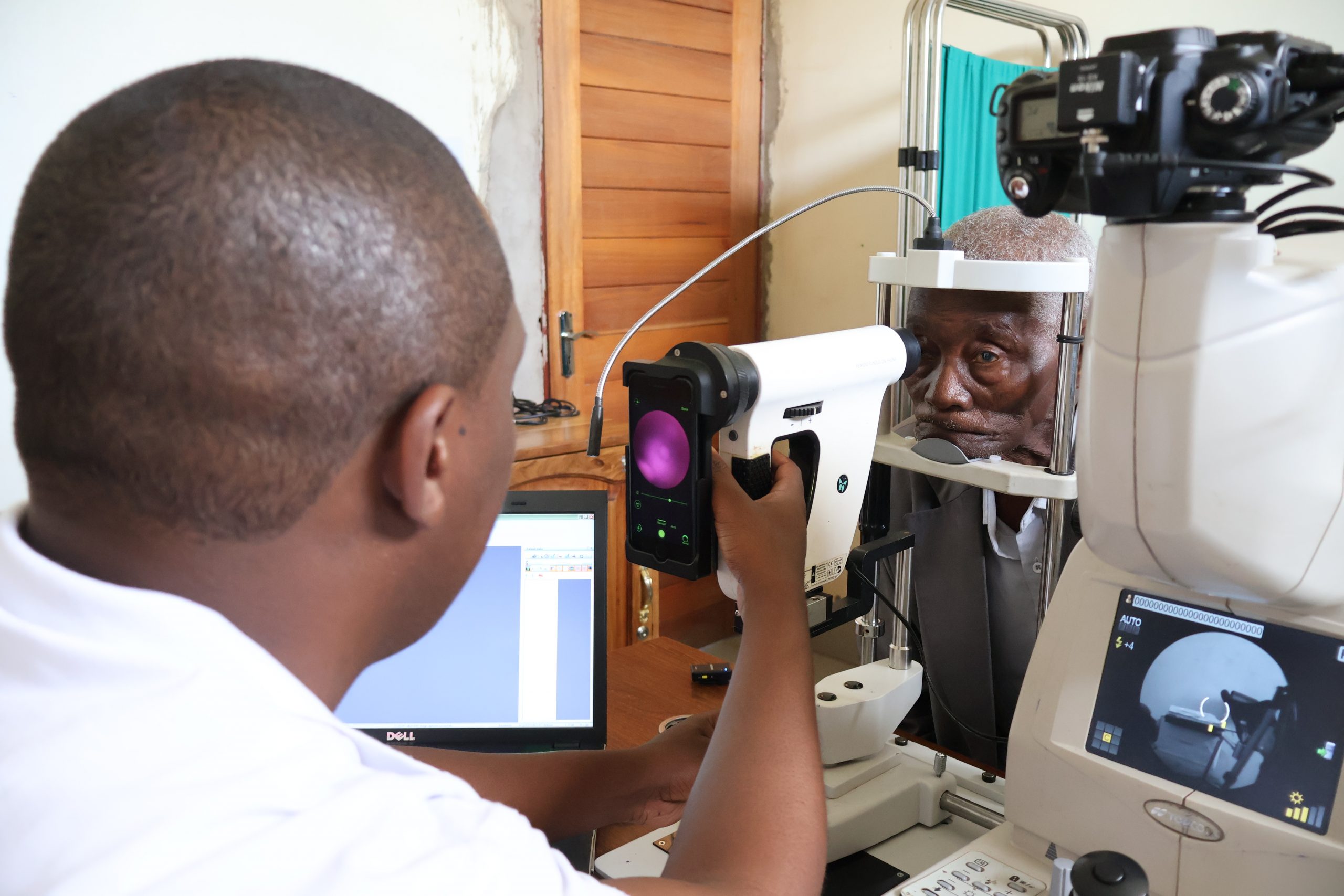Artificial Intelligence Research Projects
Artificial intelligence (AI) holds transformative potential for health, particularly in eye care where it has demonstrated significant promise.
The diagnosis and screening of eye conditions frequently relies on image-based analysis, and recent studies suggest that AI can match or even surpass humans at these tasks. With many places around the world lacking trained specialists, AI could offer faster, cheaper and more efficient referrals than current systems, freeing up healthcare workers for other duties and allowing more people to receive treatment.
At the International Centre for Eye Health we are at the forefront of researching AI for eye care in low-income settings, and several current projects are focused on assessing its use for improving sight and people’s lives worldwide.

AI for Diabetic Retinopathy
In Tanzania, we are running a clinical trial to assess whether using artificial intelligence (AI) in a real-world programme can improve DR screening outcomes for patients and help prevent people losing vision from DR.

AI for Corneal Infections
A new project by ICEH will develop and test a smartphone-based artificial intelligence (AI) tool for diagnosing corneal infections in Nepal.

AI for Retinopathy of Prematurity
In Nepal, ICEH will run a study comparing the current (expensive) standard equipment against cheaper, smartphone-based cameras, while comparing human assessment of the images from both devices against an AI

African Centre for AI Excellence
Currently there are no African institutions or African researchers leading ophthalmic AI development and research programmes. Our aim is to change this by establishing Africa’s first Centre of Excellence for Ophthalmic AI research.
Artificial Intelligence Research Projects
Artificial intelligence (AI) holds transformative potential for health, particularly in eye care where it has demonstrated significant promise.
The diagnosis and screening of eye conditions frequently relies on image-based analysis, and recent studies suggest that AI can match or even surpass humans at these tasks. With many places around the world lacking trained specialists, AI could offer faster, cheaper and more efficient referrals than current systems, freeing up healthcare workers for other duties and allowing more people to receive treatment.
At the International Centre for Eye Health we are at the forefront of researching AI for eye care in low-income settings, and several current projects are focused on assessing its use for improving sight and people’s lives worldwide.
AI for Diabetic Retinopathy
In Tanzania, we are running a clinical trial to assess whether using artificial intelligence (AI) in a real-world programme can improve DR screening outcomes for patients and help prevent people losing vision from DR.
AI for Corneal Infections
A new project by ICEH will develop and test a smartphone-based artificial intelligence (AI) tool for diagnosing corneal infections in Nepal.
AI for Retinopathy of Prematurity
In Nepal, ICEH will run a study comparing the current (expensive) standard equipment against cheaper, smartphone-based cameras, while comparing human assessment of the images from both devices against an AI
African Centre for AI Excellence
Currently there are no African institutions or African researchers leading ophthalmic AI development and research programmes. Our aim is to change this by establishing Africa’s first Centre of Excellence for Ophthalmic AI research.
